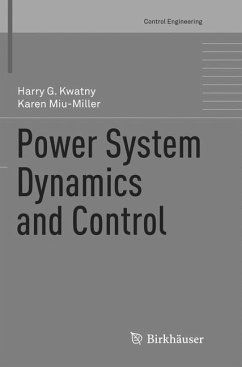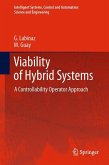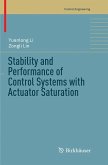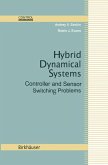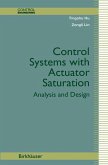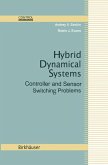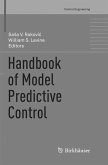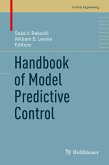This monograph explores a consistent modeling and analytic framework that provides the tools for an improved understanding of the behavior and the building of efficient models of power systems. It covers the essential concepts for the study of static and dynamic network stability, reviews the structure and design of basic voltage and load-frequency regulators, and offers an introduction to power system optimal control with reliability constraints. A set of Mathematica tutorial notebooks providing detailed solutions of the examples worked-out in the text, as well as a package that will enable readers to work out their own examples and problems, supplements the text.
A key premise of the book is that the design of successful control systems requires a deep understanding of the processes to be controlled; as such, the technical discussion begins with a concise review of the physical foundations of electricity and magnetism. This is followed by an overview of nonlinear circuits that include resistors, inductors, capacitors, and memristors, along with an examination of basic circuit mathematical models and formulations. AC power systems are considered next, in which models for their basic components are derived. The following chapters address power system dynamics using both the ordinary differential equation and differential-algebraic equation models of a power network, as well as bifurcation analysis and the behavior of a network as it approaches voltage instability. Two classic control problems - voltage regulation and load-frequency control - are then described, including the coordination of economic dispatch with load-frequency control. Finally, power system control problems involving operation in highly nonlinear regimes and subjected to discrete failure modes are discussed.
Power System Dynamics and Control will appeal to practicing power system engineers, control systems engineers interested in powersystems, and graduate students in these areas. Because it provides sufficient information about their modelling and behavior, control engineers without a background in power systems will also find it to be a valuable resource.
A key premise of the book is that the design of successful control systems requires a deep understanding of the processes to be controlled; as such, the technical discussion begins with a concise review of the physical foundations of electricity and magnetism. This is followed by an overview of nonlinear circuits that include resistors, inductors, capacitors, and memristors, along with an examination of basic circuit mathematical models and formulations. AC power systems are considered next, in which models for their basic components are derived. The following chapters address power system dynamics using both the ordinary differential equation and differential-algebraic equation models of a power network, as well as bifurcation analysis and the behavior of a network as it approaches voltage instability. Two classic control problems - voltage regulation and load-frequency control - are then described, including the coordination of economic dispatch with load-frequency control. Finally, power system control problems involving operation in highly nonlinear regimes and subjected to discrete failure modes are discussed.
Power System Dynamics and Control will appeal to practicing power system engineers, control systems engineers interested in powersystems, and graduate students in these areas. Because it provides sufficient information about their modelling and behavior, control engineers without a background in power systems will also find it to be a valuable resource.
"This monograph covers static and dynamic network stability and an introduction to power system optimal control with reliability constraints. ... This is likely to be the most valuable material for a control engineer working in industry. It is very nicely written and well-illustrated using figures and diagrams." (ACTC applied control technology consortium, actc-control.com, February, 2017)

